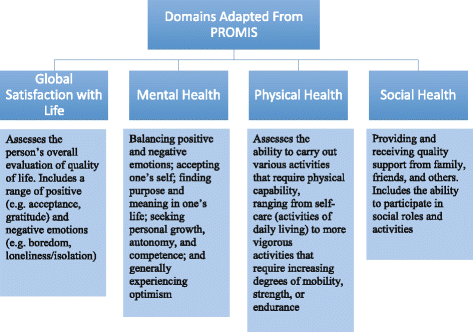Patient outcomes after critical illness: a systematic review of qualitative studies following hospital discharge
- PMID: 27782830
- PMCID: PMC5080744
- DOI: 10.1186/s13054-016-1516-x
Patient outcomes after critical illness: a systematic review of qualitative studies following hospital discharge
Abstract
Background: There is growing interest in patient outcomes following critical illness, with an increasing number and different types of studies conducted, and a need for synthesis of existing findings to help inform the field. For this purpose we conducted a systematic review of qualitative studies evaluating patient outcomes after hospital discharge for survivors of critical illness.
Methods: We searched the PubMed, EMBASE, CINAHL, PsycINFO, and CENTRAL databases from inception to June 2015. Studies were eligible for inclusion if the study population was >50 % adults discharged from the ICU, with qualitative evaluation of patient outcomes. Studies were excluded if they focused on specific ICU patient populations or specialty ICUs. Citations were screened in duplicate, and two reviewers extracted data sequentially for each eligible article. Themes related to patient outcome domains were coded and categorized based on the main domains of the Patient Reported Outcomes Measurement Information System (PROMIS) framework.
Results: A total of 2735 citations were screened, and 22 full-text articles were eligible, with year of publication ranging from 1995 to 2015. All of the qualitative themes were extracted from eligible studies and then categorized using PROMIS descriptors: satisfaction with life (16 studies), including positive outlook, acceptance, gratitude, independence, boredom, loneliness, and wishing they had not lived; mental health (15 articles), including symptoms of post-traumatic stress disorder, anxiety, depression, and irritability/anger; physical health (14 articles), including mobility, activities of daily living, fatigue, appetite, sensory changes, muscle weakness, and sleep disturbances; social health (seven articles), including changes in friends/family relationships; and ability to participate in social roles and activities (six articles), including hobbies and disability.
Conclusion: ICU survivors may experience positive emotions and life satisfaction; however, a wide range of mental, physical, social, and functional sequelae occur after hospital discharge. These findings are important for understanding patient-centered outcomes in critical care and providing focus for future interventional studies aimed at improving outcomes of importance to ICU survivors.
Keywords: Critical illness; Patient outcomes; Qualitative research; Quality of life.
Figures
References
Publication types
MeSH terms
Grants and funding
LinkOut - more resources
Full Text Sources
Other Literature Sources
Medical


